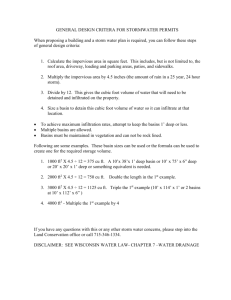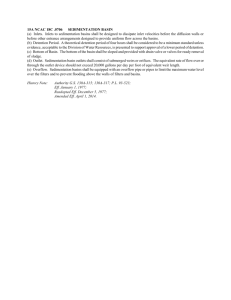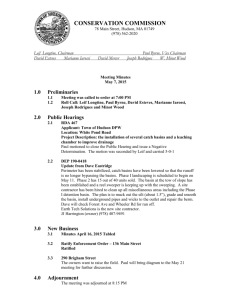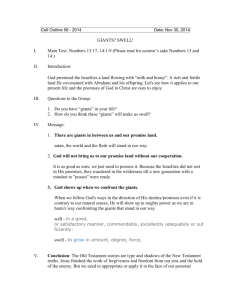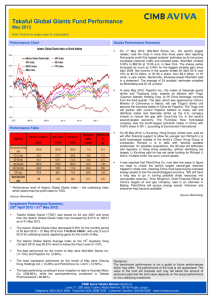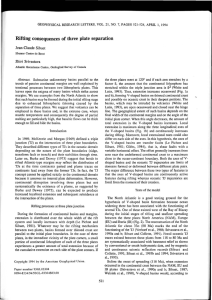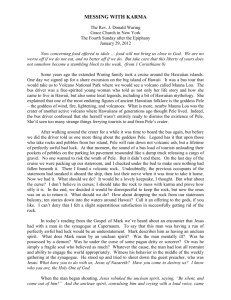The Saline Giants - Sedimentary Extremes that are part of the Earth`s
advertisement
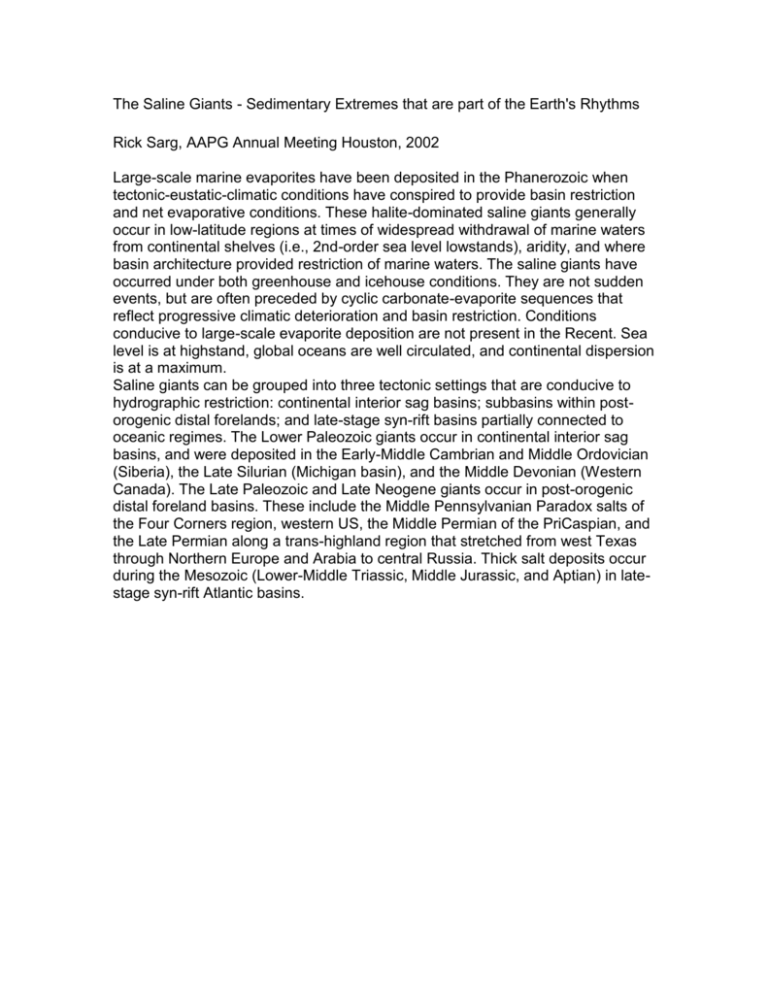
The Saline Giants - Sedimentary Extremes that are part of the Earth's Rhythms Rick Sarg, AAPG Annual Meeting Houston, 2002 Large-scale marine evaporites have been deposited in the Phanerozoic when tectonic-eustatic-climatic conditions have conspired to provide basin restriction and net evaporative conditions. These halite-dominated saline giants generally occur in low-latitude regions at times of widespread withdrawal of marine waters from continental shelves (i.e., 2nd-order sea level lowstands), aridity, and where basin architecture provided restriction of marine waters. The saline giants have occurred under both greenhouse and icehouse conditions. They are not sudden events, but are often preceded by cyclic carbonate-evaporite sequences that reflect progressive climatic deterioration and basin restriction. Conditions conducive to large-scale evaporite deposition are not present in the Recent. Sea level is at highstand, global oceans are well circulated, and continental dispersion is at a maximum. Saline giants can be grouped into three tectonic settings that are conducive to hydrographic restriction: continental interior sag basins; subbasins within postorogenic distal forelands; and late-stage syn-rift basins partially connected to oceanic regimes. The Lower Paleozoic giants occur in continental interior sag basins, and were deposited in the Early-Middle Cambrian and Middle Ordovician (Siberia), the Late Silurian (Michigan basin), and the Middle Devonian (Western Canada). The Late Paleozoic and Late Neogene giants occur in post-orogenic distal foreland basins. These include the Middle Pennsylvanian Paradox salts of the Four Corners region, western US, the Middle Permian of the PriCaspian, and the Late Permian along a trans-highland region that stretched from west Texas through Northern Europe and Arabia to central Russia. Thick salt deposits occur during the Mesozoic (Lower-Middle Triassic, Middle Jurassic, and Aptian) in latestage syn-rift Atlantic basins.


